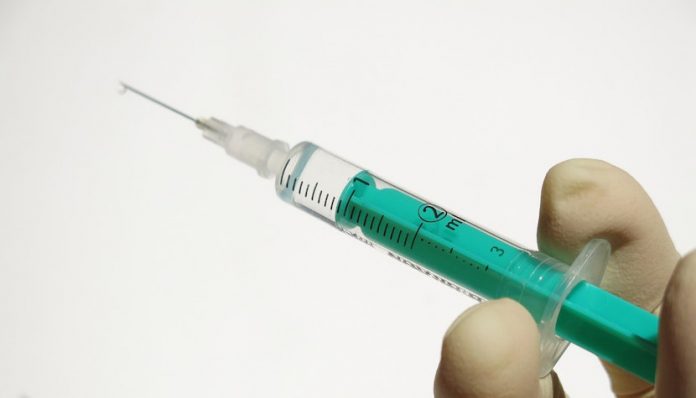A Family’s Fight to Save Sight: Living with Bardet-Biedl Syndrome
Jayke, an 11-year-old boy with a contagious smile and a heart of gold, faces a challenging future. Diagnosed with Bardet-Biedl syndrome, a rare genetic disorder, he lives with the constant shadow of potential blindness.
Jayke’s journey began at birth when doctors noted an extra finger on each hand. While his early development seemed normal, a delayed speech milestone and recurring concerns led to his diagnosis. Tragically, Jayke’s sister also carried the syndrome, leading to a heartbreaking decision to terminate a subsequent pregnancy.
Jayke has faced many hurdles, including delayed language development and difficulty pronouncing certain sounds. His mother recalls, “He leaves out the hard sounds in particular, making ‘daddy’ sound like ‘a,a,’ for example.”
But Jayke’s determination shines through. He attends special education and thrives in an environment where he receives the support he needs. Books like the “Harry Potter” series open a world of adventure and knowledge for him, revealing his resilience and thirst for learning.
Swimming offers Jayke joy and a sense of accomplishment. Year after year, he works diligently towards earning his A-diploma, always striving to improve.
“He wants to do everything faster, but he simply can’t,” his mother explains, sharing the frustration of Jayke’s desire to move at a pace his body doesn’t allow. “You can ask him to put on his coat within thirty seconds, but that will create stress and make it take longer. ‘Why does everything always have to be so fast, mom?’ he then sighs.”
While Jayke navigates the daily challenges of his condition, his mother carries a heavy burden of worry. “I’m most worried about his eyes. Children with Bardet-Biedl syndrome may be blind at an early age,” she confides.
The prospect of blindness fills her with fear for Jayke’s future. How will he communicate if he loses his sight? How will he ask for help when others don’t understand him? The thought of his world shrinking, of his ability to relax through drawing being taken away, is agonizing.
His mother’s plea is clear: “Please let them hurry up with that gene therapy for the eyes, I think. And listen to the needs of patients. Don’t just focus the research on the kidneys and obesity, but join forces and work especially on eye therapy. Blindness has the most impact on the quality of life.”
Despite the hardships, Jayke’s family remains hopeful. A recent grant awarded for a phase 1 trial of gene therapy offers a glimmer of light. It’s a race against time – a fight to preserve Jayke’s vision and secure a brighter future.
What are the potential long-term effects of Bardet-Biedl Syndrome on individuals?
## A Family’s Fight to Save Sight: Living with Bardet-Biedl Syndrome
**Introduction**
Welcome back to the show! Today, we’re talking about a rare genetic disorder called Bardet-Biedl Syndrome with Dr. Emily Carter, a geneticist specializing in ciliopathies. Dr. Carter, thank you for joining us.
**Dr. Carter:** Thank you for having me.
**Host:** We recently spoke to the family of 11-year-old Jayke, who was diagnosed with BBS. His story highlights the challenges families face when confronted with this complex condition. Could you tell us a bit more about Bardet-Biedl Syndrome?
**Dr. Carter:** Bardet-Biedl Syndrome is a rare, inherited disorder that affects many parts of the body [[1](https://www.ncbi.nlm.nih.gov/books/NBK1363/)]. It’s classified as a ciliopathy, meaning it involves defects in cilia – tiny, hair-like structures found on the surface of nearly all our cells. These cilia play a crucial role in cell signaling and communication, and their dysfunction in BBS leads to a variety of symptoms.
**Host:** We learned that Jayke was born with extra fingers, a common symptom. What other characteristics are associated with BBS?
**Dr. Carter:** Yes, postaxial polydactyly, or extra fingers or toes, is a common feature. However, BBS is a multi-system disorder, so the symptoms can vary widely from person to person.
Other frequent characteristics include vision problems, particularly retinal dystrophy which can lead to blindness, obesity, cognitive impairment, hypogonadotropic hypogonadism affecting sexual development, and kidney abnormalities.
**Host:** Jayke’s family shared their struggle with his delayed speech development. Can you elaborate on the learning and developmental challenges associated with BBS?
**Dr. Carter:** While intellectual disability is present in some individuals, the spectrum varies greatly. Some may have learning difficulties or delayed development milestones as Jayke experienced, while others might have more significant cognitive impairment.
It’s essential to remember that each child’s experience with BBS is unique. Early intervention and appropriate support services can significantly improve outcomes for children like Jayke.
**Host:** This sounds incredibly challenging for both the individual and their families. What message would you like to share with families facing this diagnosis?
**Dr. Carter:** First, know that you are not alone. There are resources available, support groups, and specialists who understand what you’re going through. Don’t hesitate to seek out those resources.
Secondly, early detection and intervention are crucial. Working closely with a team of healthcare professionals, including geneticists, ophthalmologists, and therapists, can make a world of difference in managing the symptoms and maximizing quality of life.
**Host:** Thank you so much for shedding light on this important topic, Dr. Carter. Your insights are invaluable for families navigating the complexities of Bardet-Biedl Syndrome.


